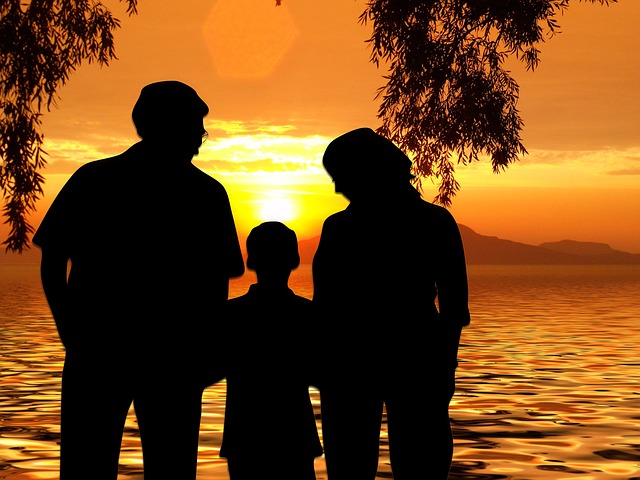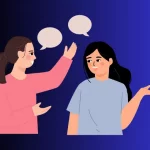
Image Source: Pixabay
Drugs are a challenging topic to broach with kids. You may be tempted to tell them to not do drugs ever, but you know that the topic is a lot more complex than that. Besides, just telling a kid not to do something isn’t guaranteed to work! In fact, young people may even be more curious about something once you tell them not to do it…
If you want to learn how to talk to your kids about drugs in ways more in-depth than “just say no,” read on.
Discuss, Don’t Preach
If drugs are portrayed as a huge no-no, children may feel less comfortable talking to their parents and guardians about them. They may then start looking for answers elsewhere. That’s why it’s important to have open discussions. Encourage questions, listen to your kids, and do research on a drug if you don’t know the answer to something.
- Start with every day and prescription drugs.
From a young age, teach kids what cough syrup and multivitamin gummies are for and what can happen if you don’t take the right amount. You can teach them what words like “dosage” mean.
Empower kids.
Some kids start taking prescription medicine at a young age, such as an ADVAIR® inhaler for asthma. While you should always supervise young children, teach them how to administer their own medication. This will empower kids and teach them that there is a correct and appropriate way to use a drug.
Keep it current and relevant.
Older kids may be open to discussing relevant current events, such as steroid abuse, the opioid crisis, and the high price of pharmaceuticals. If you buy medicine shipped from a country with lower drug prices, such as through regulated referral services like Rx Connected, you can discuss how important and valuable drugs can be. Drugs save lives, but they can also take away lives if used inappropriately.
Remember: there is a right and wrong way to use drugs. Drugs are things to be respected, not feared.
- Be honest and informative.
One addictions counselor argues that fear-mongering is an ineffective strategy because it discredits you. For example, if you tell a child that smoking marijuana will make them so badly in school, but they see their pot-smoking peer earn straight As, your child may begin to distrust you. They may then seek information elsewhere and avoid discussing drugs with you because they see you as an inaccurate source.
Arm young people with knowledge so they can make sound decisions.
At some point, your child may find themselves alone in a position to choose whether or not to use a drug. If this happens, you want to make sure your child knows as much about the drug as possible in order to make an informed choice. After all, not all drugs work the same way or have the same effects.
So, teach your kids what common recreational drugs actually do. Alcohol causes less inhibition, for example, while cocaine can make you feel hyper.
“Have you ever used drugs, Mom?”
At some point, many children will ask whether you have done drugs before.
While it can get awkward, you can be honest without divulging too many details. You can frame your experience as a cautionary tale: perhaps you once got in a car with a drunk person and were very scared, and you don’t want your child to go through that. Or, perhaps you once smoked and had a very difficult time quitting, and now have to deal with consequences of damaged lungs.
- Talk about why people use drugs.
This is often a neglected but important topic because, in many cases, people use drugs not for the sake of using drugs, but because of other underlying reasons. They may look to drugs as a way to relieve stress. Or, they may be curious or want to fit in.
Discussing the reasons for substance use can allow your child to reflect on their own coping strategies. When kids are more in touch with their emotions and placed in an environment where discussing such emotions are welcome, they are more likely to reach out for help rather than reach for drugs. Encourage your kids to find healthy, enjoyable ways to relieve stress, satisfy curiosity, and bond with their peers.
- Harm reduction.
Some parents use harm reduction education to help keep kids safe. While harm reduction doesn’t outright ban drugs, they can prevent a potentially life-threatening situation. At the end of the day, you want your child to be alive and safe. Here are four examples of harm reduction:
- Assure your teen that if they ever find themselves in a situation where they’re stuck with a drunk driver, you are able to pick them up, no questions asked.
- Teach your child not to drink alcohol on an empty stomach and to go slow. This will give them more control over the intoxicating effects of drinking.
- Pills can be cut with unwanted substances. For example, an ecstasy pill may be contaminated with fentanyl, which can easily cause an overdose.
- Marijuana edibles (e.g. pot brownies) can take hours to kick in. Tell kids to never over-indulge in them if they don’t feel the effects immediately.
At the end of the day, how you choose to instruct your child will vary depending on your own personal experience and beliefs. In general, put yourself in your child’s position: if you were to hear an adult saying this, would you be more discouraged from trying drugs?
About The Author:
Alison Lee is a young freelance writer based in Vancouver, British Columbia. She enjoys writing about finance, medicine, and health, among other topics.




![[Infographic] Yoga For Kids Infographic](https://www.safeandhealthylife.com/wp-content/uploads/2017/03/Infographic.png)